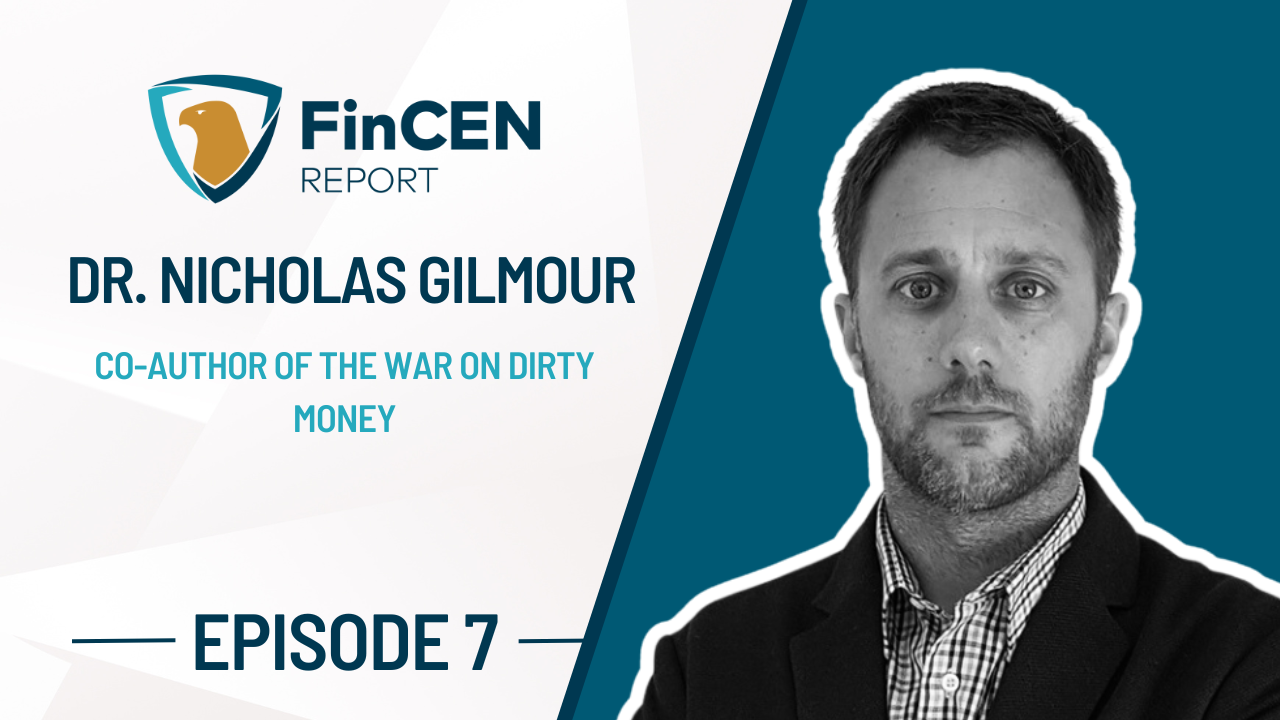In Episode 7 of the FinCEN Report Podcast, our CEO Jonathan Wilson spoke with Dr. Nicholas Gilmour, an expert in financial crime from New Zealand and the author of “The War on Dirty Money.” This conversation delves into Dr. Gilmour’s insights on the evolution of anti-money laundering efforts and his recommendations for future initiatives, especially in the context of the Corporate Transparency Act (CTA) in the United States.
About Dr. Nicholas Gilmour
To kick off the episode, Dr. Gilmour shared his unconventional path from working as an aircraft electrician to pursuing a lifelong dream of becoming a police officer, which eventually led him across the globe from England to New Zealand, and later to roles in the United Arab Emirates and back to New Zealand. This diverse international experience provided him with a unique perspective on financial crime and money laundering, culminating in a doctorate focused on anti-money laundering and a career as an independent consultant.
Global Perspectives on Money Laundering
Highlighting his work in different jurisdictions, Dr. Gilmour discussed the varying approaches to combatting money laundering, from the UK’s Proceeds of Crime Act to the financial reforms in the United Arab Emirates and New Zealand’s reaction to the Panama Papers. These experiences underline the complexity of money laundering and the need for continually evolving strategies to combat it effectively.
“The War on Dirty Money”: A Global Call for Action
Dr. Gilmour’s book, co-authored with Tristram Hicks, serves as a global call to action, offering a comprehensive analysis of anti-money laundering efforts and proposing a suite of solutions to enhance these efforts worldwide. The book emphasizes the importance of global cooperation and innovation in the fight against dirty money.
The Corporate Transparency Act and the Future of AML Efforts
Dr. Gilmour expresses optimism about the CTA’s potential to reveal beneficial ownership and combat money laundering. However, he also cautions that money launderers are adept at circumventing regulatory hurdles, suggesting that while such measures are steps in the right direction, vigilance and continuous adaptation are crucial.
Additionally, Dr. Gilmour spoke on the need to bridge the gap between financial intelligence and law enforcement. Through better coordination and sharing of information, as well as increased investment in law enforcement training and resources, he argues that these measures can lead to actionable law enforcement outcomes when it comes to combatting money laundering.
Concluding Thoughts and the Path Forward
Dr. Gilmour concluded the podcast with encouragement for ongoing dialogue and innovation in anti-money laundering strategies. He emphasized that while regulatory compliance is essential, the ultimate goal should be to empower law enforcement to disrupt and dismantle money laundering operations effectively.


